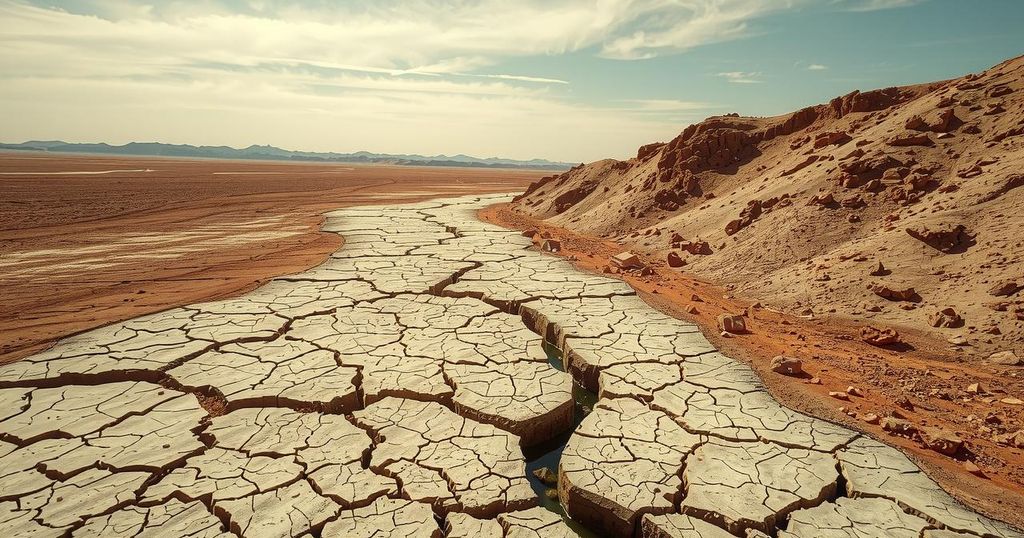Historic Drought Lowers Paraguay River Water Levels, Endangering Regional Commerce
A severe drought has led to record low water levels on the Paraguay River, disrupting commerce and affecting 1,600 fishermen in Paraguay. This drop, attributed to climate change, impacts regional shipping capacities and raises concerns about future weather patterns. Experts warn of increasing drought frequency and its effects on ecosystems and water access.
A severe drought affecting the Amazon rainforest has resulted in the lowest water levels recorded on the Paraguay River in over a century. This situation disrupts commercial activities along this vital waterway, as announced by Paraguay’s Department of Meteorology and Hydrology. Water levels at the port of Asunción have dropped 89 centimeters (35 inches) below normal, marking the lowest point in 120 years and surpassing a previous record set in 2021, indicative of increasingly frequent and severe droughts.
Paraguay, a landlocked country and major exporter of agricultural goods, heavily depends on the river for the transportation of 80% of its international trade. The impact of the current drought is severe, with the head of Paraguay’s fishing union reporting that 1,600 fishermen have lost their livelihoods due to the receding waters. Many boats are now stranded on the dry riverbanks, unable to operate as the water level continues to fall.
The Paraguay-Paraná waterway extends approximately 3,400 kilometers (about 2,110 miles) through South America, serving as a crucial transport route for agricultural products such as grain and soy. Drought has not only affected Paraguay but has caused shipping disruptions across the region, halting over half of the river’s shipping activities. Countries like Brazil and Bolivia now face logistical challenges, rerouting vital shipments and dealing with potential electricity supply cuts in Paraguay.
With forecasts indicating no expected rainfall in the upcoming weeks, industry officials anticipate significant financial losses amounting to hundreds of millions of dollars. Raúl Valdez, president of the Center of River and Maritime Shipowners in Paraguay, expressed concerns about a potential shift in weather patterns, stating, “No one is expecting a quick recovery,” emphasizing the uncertainty surrounding the situation.
Experts attribute the drying of various rivers, including the Paraguay River, to population growth, climate change, and deforestation. Rachael McDonnell from the International Water Management Institute noted an alarming trend of increasing droughts worldwide. She emphasized that as climatic conditions worsen, the balance of ecosystems is threatened, resulting in communities struggling to secure fresh water.
The ongoing extreme drought connected to climate change has had dire consequences for the Amazon, exacerbating the conditions that have led to wildfires in Paraguay and Bolivia. The situation has prompted Bolivia to declare a national emergency as air quality deteriorates due to smoke from the fires.
The severe drought resulting in historic low water levels on the Paraguay River poses significant threats not only to Paraguay’s economy but also to the wider region dependent on this vital waterway. As industry leaders and experts underscore an increasing frequency of droughts spurred by climate change, the repercussions are felt across multiple sectors, illustrating a pressing need for sustainable management and governance efforts in affected areas.
Original Source: bgdailynews.com




Post Comment